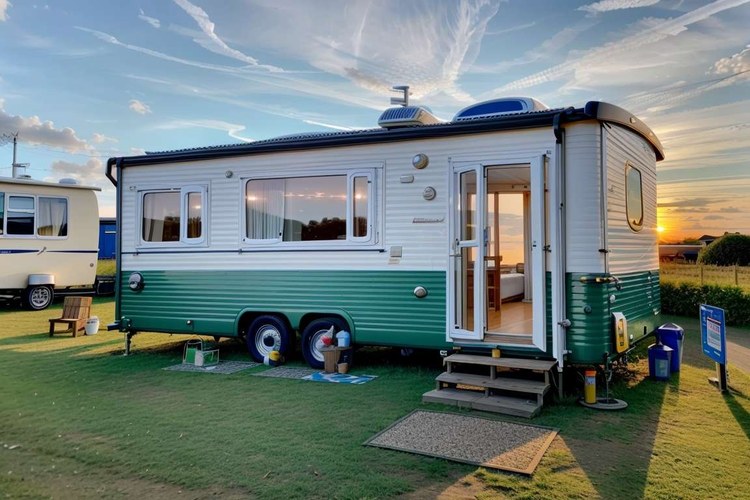Smart Shopping Guide: What to Look for When Buying a Used Travel Trailer
Discover how to choose a used travel trailer, focusing on budget, size, and condition. Check for maintenance records, structural integrity, and essential features to ensure reliability. A smart choice can provide comfort, flexibility, and value for your travel adventures.

Tips for Identifying a Reliable Used Travel Trailer
When searching for a dependable used travel trailer, start by examining its age and overall condition. Units between 3-10 years old often provide the best balance of value and remaining lifespan. Look for consistent maintenance records that show the previous owner properly cared for the trailer. Pay special attention to the exterior condition—fading, dents, or excessive wear might indicate neglect. Ask about how frequently the trailer was used and whether it was stored indoors or outdoors when not in use. A trailer that spent most of its time protected from the elements will typically have fewer issues with seals, seams, and exterior components than one continuously exposed to harsh weather conditions.
Essential Structural Elements to Examine in Used Travel Trailers
The structural integrity of a used travel trailer should be your primary concern. Begin by inspecting the frame for rust, bends, or cracks, particularly where the frame connects to the axles and hitch. Check the floor throughout the unit for soft spots by walking through and applying pressure with your feet—any sponginess could indicate water damage or rot beneath the flooring. Examine all seals around windows, doors, roof vents, and seams for signs of leaking or previous repairs. The roof deserves special attention as it’s the most common source of water damage; look for sagging, patching, or staining. Additionally, inspect the axles, suspension, and tires to ensure they’re in good working order, as these components are expensive to replace and critical for safe towing.
How to Evaluate the Interior Features of a Used Travel Trailer
The interior condition reveals much about how well a trailer has been maintained. Test all appliances, including the refrigerator (on both propane and electric), stove, oven, microwave, air conditioner, and furnace. Verify that the plumbing system functions properly by running water through all faucets and checking for leaks under sinks and around the toilet. Flush the toilet and inspect the black water tank valves. Test all electrical systems, including lights, outlets, and any installed electronics. Open and close all cabinets, checking for water damage, unusual odors, or evidence of pests. Look at the ceiling for stains or discoloration that might indicate roof leaks. The condition of upholstery, mattresses, and flooring can provide clues about overall maintenance and may factor into your negotiation.
Important Mechanical Systems to Test When Purchasing a Used Trailer
Beyond the visible aspects, a thorough inspection of mechanical systems is crucial. Test the propane system for proper function and potential leaks—a propane detector can be useful for this purpose. Examine the battery’s condition and charging system, including any solar installations. Check the trailer’s brakes and brake controller compatibility with your towing vehicle. The stabilizer jacks and leveling system should operate smoothly without excessive rust or damage. If the trailer has slide-outs, extend and retract them multiple times to ensure they move properly and seal correctly when closed. Don’t forget to test any additional systems like generators, water heaters, water pumps, and holding tank sensors. Problems with these systems can be expensive to repair and significantly impact your camping experience.
Factors That Influence Used Travel Trailer Value
Several key factors determine a used travel trailer’s market value. Brand reputation plays a significant role—manufacturers known for quality construction typically command higher prices even when used. The trailer’s age and mileage (how far it’s been towed) affect pricing, with newer models generally costing more. Floor plan design and size impact value based on current market demand. Amenities and feature packages can significantly influence price, especially for modern conveniences like solar power systems, upgraded appliances, or entertainment systems. Seasonal factors also affect pricing, with demand typically rising in spring and early summer, resulting in higher prices compared to fall or winter purchases.
Used Travel Trailer Inspection Checklist and Buying Process
When you’re ready to make a purchase, follow a systematic approach. Always run a title check to verify ownership and ensure there are no liens against the trailer. Consider hiring a professional RV inspector, especially if you’re not familiar with travel trailer systems—their fee is worthwhile insurance against major hidden problems. Request maintenance records and any available warranty information. Before finalizing the purchase, take the trailer for a test tow if possible to ensure it handles well with your vehicle. Document any issues you discover during inspection and use these as negotiation points. Finally, obtain proper insurance coverage before taking possession, and make sure you understand the registration requirements in your state or province.
When navigating the used travel trailer market, thorough research and careful inspection are your best tools for finding a reliable unit that will provide years of enjoyment rather than frustration. By focusing on structural integrity, mechanical systems, and interior condition, you’ll be well-positioned to make a sound investment in your future adventures.




